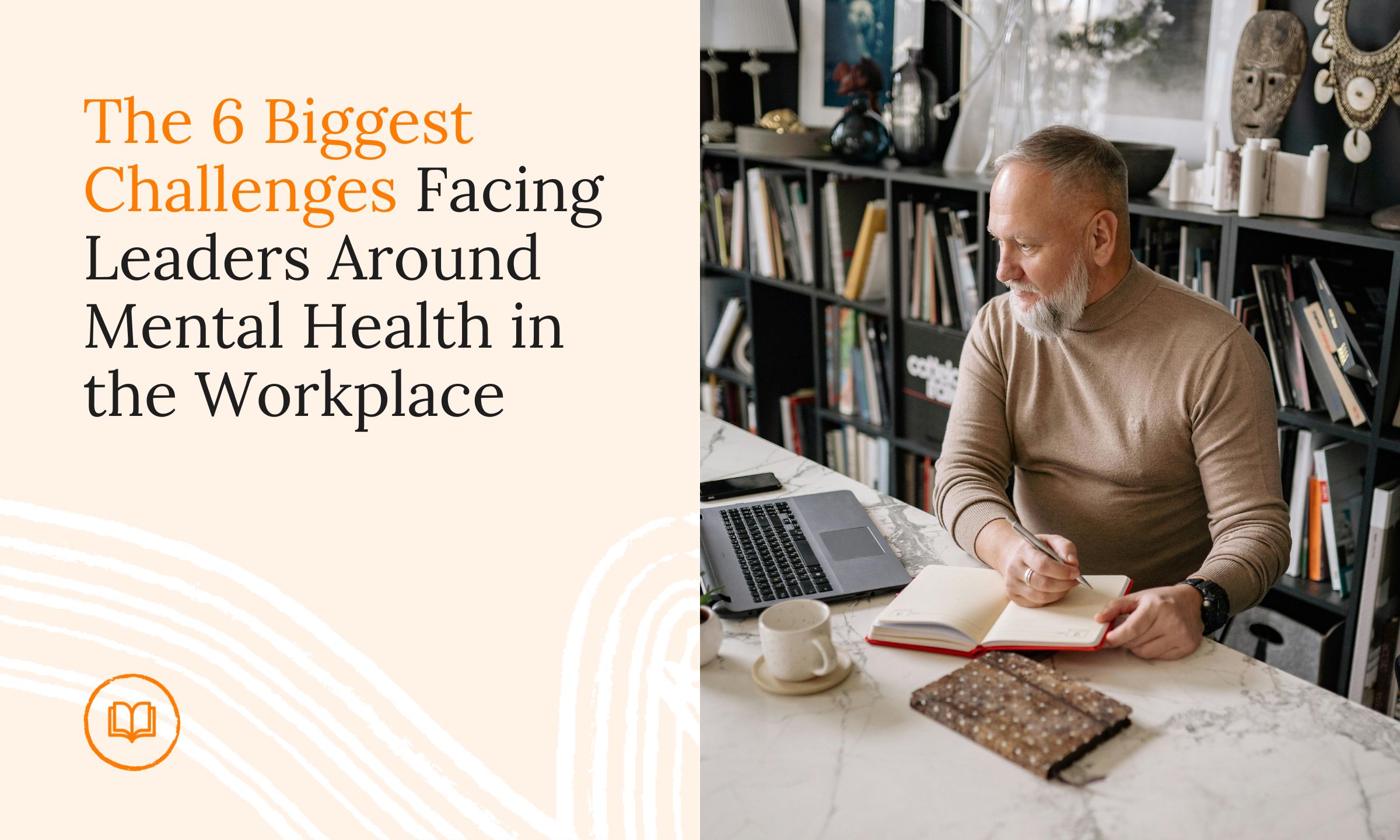Mental health is becoming a more common conversation at work — which is wonderful. Good leaders recognize the importance of acknowledging and prioritizing the importance of their team’s mental health.
But mental health is such a broad and expansive field that there are many important areas that leaders simply might not understand.
In this article, we’ll break down seven important concepts that leaders need to get to grips with to support their employees. Let’s get started!

1. Mental health issues are common
How many people are actually suffering from mental health, you might wonder? Surely not that many?
But actually, mental health issues like anxiety, depression, and more are extremely common.
- One in five adults live with an ongoing mental health condition
- Half of the world’s population will experience a mental health disorder at some point in their life.
- We all experience moments of anxiety, depression, isolation, insecurity, shame and more from time to time.
Because mental health conditions are so common, it’s likely that members of your team are already dealing with them. You might not even be aware of this because 8 out of 10 employees hide mental health problems because of workplace stigma and silence.
Imagine how much easier they would find it if you offered them the support and healthy working environment they needed?
2. Mental health affects performance, productivity and engagement
Sometimes leaders get distracted thinking about the profits and KPIs of a business. Fair enough, but mental health does not lie outside of this realm. In fact, poor mental health is one of the major reasons you might not be hitting those KPIs.
Poor mental health leads to:
- Disengagement
- Decrease in performance
- Burnout and high turnover
Of course, if your employees aren’t feeling at their best, they’re not going to be able to work at their best either. Just as you wouldn’t expect someone with a high fever to be super productive, someone suffering from poor mental health is also going to struggle to hit their goals.
What does that mean? Well…
3. Neglecting employee mental health is expensive
In a time of tightening budgets and economic crises, mental health is something you can’t afford to neglect. It’s expensive:
- Poor mental health costs your company €2000 per employee per year.
- 17 million annual sick days are due to work stress, depression or anxiety.
- Disengaged employees produce 28% less revenue for the companies they work for.
- For a company of 300 employees, poor mental health costs your organization more than half a million euros every year.
That means that implementing a benefit like mental health support is far from an additional cost: in fact, it saves your company money, with an average five times return on investment.
4. The workplace (and managers!) play a crucial role in employee mental health
You might think that mental health is something you don’t have much control over: surely it’s something that employees bring from their personal life and health into the office? But actually, workplaces and leaders have a big influence on employee mental health. 69% of people say that their manager has the biggest impact of any other person on their mental health.
Making changes in your workplace can lead to big results.
- Leaders who show empathy and compassion for their employees get 61% more innovation and 76% more engagement.
- Workplaces that value employee well-being and build a healthy company culture report four times higher revenue.
5. Mental health support is not one-size-fits-all
Different employees have different needs when it comes to mental health support. Your employees might need some or all of the following:
- Flexible working hours
- Mental health days
- Changes in their work environment
- Group discussions
- Counseling sessions
- Self-guided mental health support
Leaders should offer a variety of support options and be willing to tailor these to individual needs. Good employee mental health support will offer nuanced care that can work for every employee in an organization.
6. Early intervention is key… and preventative care works
Early intervention significantly improves outcomes for employees experiencing mental health issues. Leaders should encourage early help-seeking by making mental health resources readily available and promoting a culture where it’s safe to seek help.
One nilo study highlighted the importance of preventative care, which has a real and tangible benefit on nilo users:
- 82.9% of individuals with severe mental health symptoms improved after using nilo.health
- 95% of individuals with moderate mental health symptoms improved or maintained stability after using nilo.health
- 96.7% of users reported they benefited very much from their use of nilo.health
7. Leaders’ mental health matters too
In taking care of their teams, sometimes leaders forget to take care of themselves. But mental health is crucial for everyone, no matter who you are, and because leaders are under so much pressure, they are particularly vulnerable to mental health issues. In fact:
- 35% of leaders report high stress at work
- 72% of founders report mental health impacts from starting a business, including high stress, anxiety, burnout, depression, and panic attacks
As a leader, make sure you prioritize your own mental health, too. You’ll find that you’re much better placed to help your colleagues and build a stronger team if you’re also feeling strong and mentally healthy.
Want to know more about prioritizing your mental health and looking after your team’s mental health as a leader? Check out our guide!






